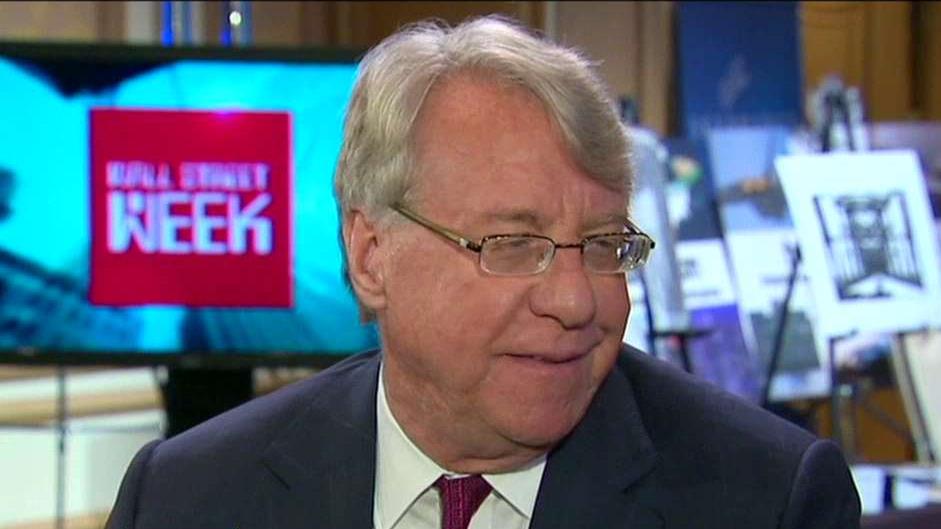Evergrande collapse could be ‘worse’ than Lehman for China, according to man who predicted Enron collapse
Evergrande’s recent warnings that it may default on its $300 billion in liabilities have spooked markets globally
Jim Chanos: Be wary of companies with lots of executive turnover
Chanos on his short positions
The collapse of embattled Chinese property developer Evergrande Group could prove to be "far worse" for investors in China than a "Lehman-type situation," according to Jim Chanos, the veteran short seller who predicted Enron’s collapse two decades ago.
BEIJING UNLIKELY TO SAVE EVERGRANDE, REPORT SAYS
The collapse of Evergrande — which has amassed more debt than any other real estate developer in the world — could halt the real estate boom that’s driven economic growth in China for much of the past decade, Chanos told the Financial Times.
"There’s lots of Evergrandes out there in China — Evergrande just happens to be one of the biggest," the founder of New York-based hedge fund Kynikos Associates said "But all the developers look like this. The whole Chinese property market is on stilts."
Evergrande’s recent warnings that it may default on its $300 billion in liabilities have spooked markets globally as investors worry about the fallout hitting international bondholders.
The company said Wednesday that it has "resolved" payments that were due Thursday on a domestic bond, but provided few details on whether it met its obligation in cash or other assets. It also did not comment the status of payments due Thursday to offshore investors, including major international asset managers.
While some collateral damage globally is expected from the Evergrande fallout, it’s unlikely to be as severe as that sparked by the collapse of Lehman Brothers 13 years ago, but the impact domestically on the Chinese economy could be worse, Chanos said.
"In many ways you don’t have to worry that it’s a Lehman-type situation but in many others, it’s far worse because it’s symptomatic of the whole economic model and the debt that’s behind the economic model," he said.
Evergrande’s cash crunch began last year, after Chinese President Xi Jinping sought to curb the domestic real estate sector’s reliance on debt to fuel expansion.
Evergrande, in particular, used debt to not only build massive and empty apartment complexes, but also to expand into totally new sectors like bottled water and electric cars.
Markets ignoring Evergrande crisis 'at their peril': Expert
Point Bridge Capital founder and CEO Hal Lambert warns China’s Evergrande crisis could potentially ‘spiral out of control.’
GET FOX BUSINESS ON THE GO BY CLICKING HERE
"If you try to deflate this bubble, it is fraught with risks," Chanos said. "I don’t think they’re contagion risks. This is not a Lehman-type situation where there is contagion interbanks and intra-banks and everybody stops lending to everybody else. This is more a risk to the economic model because residential real estate is still such a huge part of GDP there."
Chanos has been raising the alarm on China and a potential bubble in the real estate sector there ever since 2010.
Since then, he has continued to bet against Chinese companies, including Luckin Coffee, which was touted as China’s homegrown version of Starbucks. Last year, Luckin stock plummeted after news broke that it was being investigated for accounting fraud and Chanos reportedly closed out his position, taking a profit.
CLICK HERE TO READ MORE ON FOX BUSINESS
Investors appear to largely agree with Chanos’ stance that companies with exposure to China are most at risk of an Evergrande collapse. Other Chinese real estate stocks have collapsed in value this week as investors sell off shares.
The big question that remains is whether the Chinese government will get involved and bail out Evergrande in some capacity, analysts at LPL Financial said in a note to clients, adding that they believe China would not allow a default.
To read more from the New York Post, click here.





















